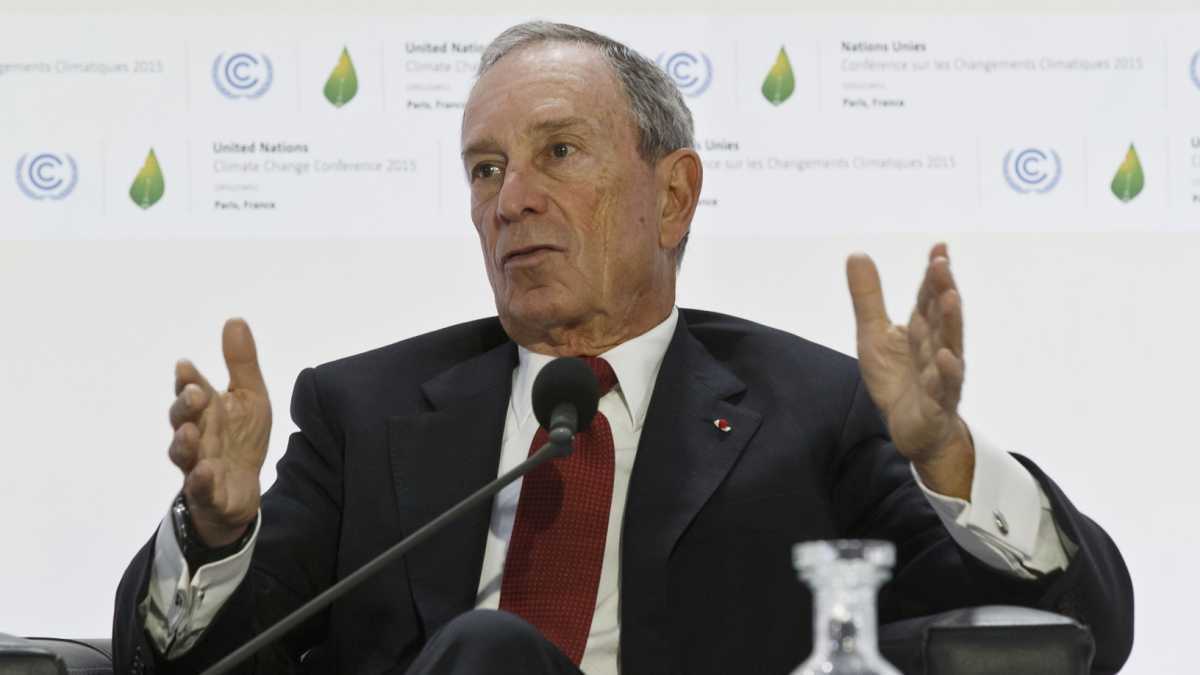Will Michael Bloomberg become another footnote in the history of third-party candidates?
Listen
Former New York City Mayor Michael Bloomberg at The United Nations Climate Change Conference last December. (Michel Euler/AP Photo)
It turns out that former New York mayor Michael Bloomberg and I have something in common: we’re both interested in the history of third-party campaigns for the American presidency. But Bloomberg’s curiosity isn’t simply academic. According to recent news reports, he’s mulling a possible run for the White House himself.
So Bloomberg has dispatched aides to study other candidates across our past who ran for president as independents. If they’re honest, Bloomberg’s advisors will tell him the truth: he can’t win. But I hope he runs anyway, because third-party candidates can shift the direction of the country even if they don’t win at the polls.
The first third-party candidate in the United States, William Wirt, got only 8 percent of the vote when he ran on the Anti-Masonic ticket in 1832. His fate was sealed by news reports that he had actually been a member of the Freemasons, the quasi-secret society that his new party aimed to crush.
But he was also nominated via an open national convention, at a time when candidates were still selected behind closed doors. After Wirt’s failed bid, all of the major parties started to sponsor open conventions as well.
The most successful third-party candidate in modern history, Teddy Roosevelt, got just over one-fourth of the vote in 1912. Roosevelt had already served nearly two terms as a Republican president, but he was dissatisfied with the conservative policies of his GOP successor William Howard Taft.
So Roosevelt bolted to the new Progressive Party, which supported women’s suffrage, the eight-hour day, and the minimum wage. And while he never made it back to the White House, his campaign surely helped bring these reforms—and many others—into the public eye.
Or consider John Anderson, the Illinois congressman who challenged Jimmy Carter and Ronald Reagan in 1980. Plagued by election laws that temporarily blocked him from the ballot in several states, Anderson ended up with less than seven percent of the national vote.
But Anderson also stirred up the electorate with his so-called “50-50” plan: a fifty-cent-a-gallon gasoline tax to reduce energy consumption, offset by an equivalent cut in Social Security taxes. From that point on, candidates had to explain how they would balance the country’s energy needs with its environmental concerns.
Twelve years later, Ross Perot took 19 percent of the vote in his contest against George H. W. Bush and Bill Clinton. Perot didn’t help his cause by dropping out of the race—at a moment when opinion polls showed he was leading it—and then coming back a few months later.
But Perot influenced the national debate, too, especially with his calls for a balanced budget. His digs at Bush for practicing “voodoo economics”—a phrase that Bush himself had coined, during an earlier campaign against Ronald Reagan—highlighted the fantasy at the heart of Republican fiscal policy: that you could cut taxes and continue to break even.
Some Republicans still claim that Perot helped Clinton win in 1992, by drawing votes away from Bush. And many Democrats won’t forgive Green Party candidate Ralph Nader for taking votes from Al Gore, who almost surely would have won Florida—and, with it, the White House—if not for Nader.
Might Bloomberg play a similar “spoiler” role in 2016, if he decides to run? Yes, but it’s not clear whose party he would spoil. If the Republicans nominate a fire-breather like Donald Trump or Ted Cruz, mainstream GOP voters might drift to Bloomberg. But he could take votes from the Democrats, too, especially if they nominate the left-leaning Bernie Sanders.
Either way, though, Bloomberg would have a moderating effect on the election. And, most of all, he’d bring his signature issues—especially gun control—onto the national stage. Already, Bloomberg has done more to fight America’s gun scourge than any other politician. Imagine what he could do if he was also running for president?
To be fair, some third-party candidates have played to the extremes of our politics rather than to the great middle: think segregationist Strom Thurmond in 1948, or the race-baiting George Wallace in 1968. But at a time when the electorate is more polarized than ever, Bloomberg would have the opposite effect. He’d bring us closer to each other, instead of dividing us further.
So I’ve got my own piece of advice for New York’s ex-mayor: Run, Mike, Run. You’ll lose the election, but you’ll help moderate our crazy, fractured politics. And that’s a big win for all of us.
WHYY is your source for fact-based, in-depth journalism and information. As a nonprofit organization, we rely on financial support from readers like you. Please give today.

